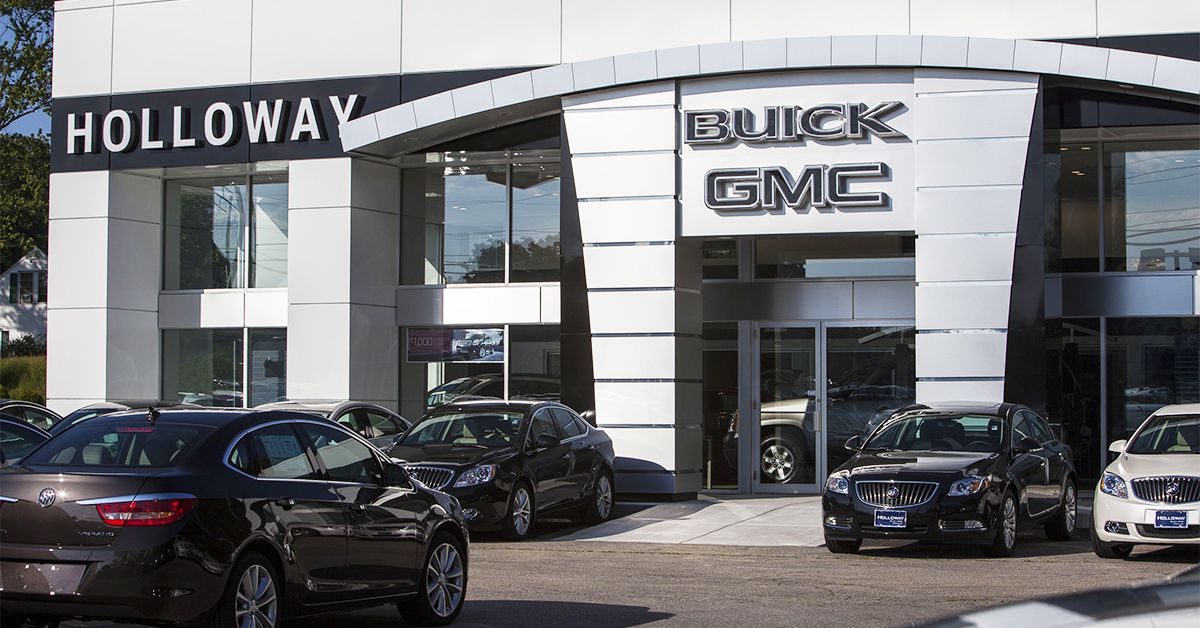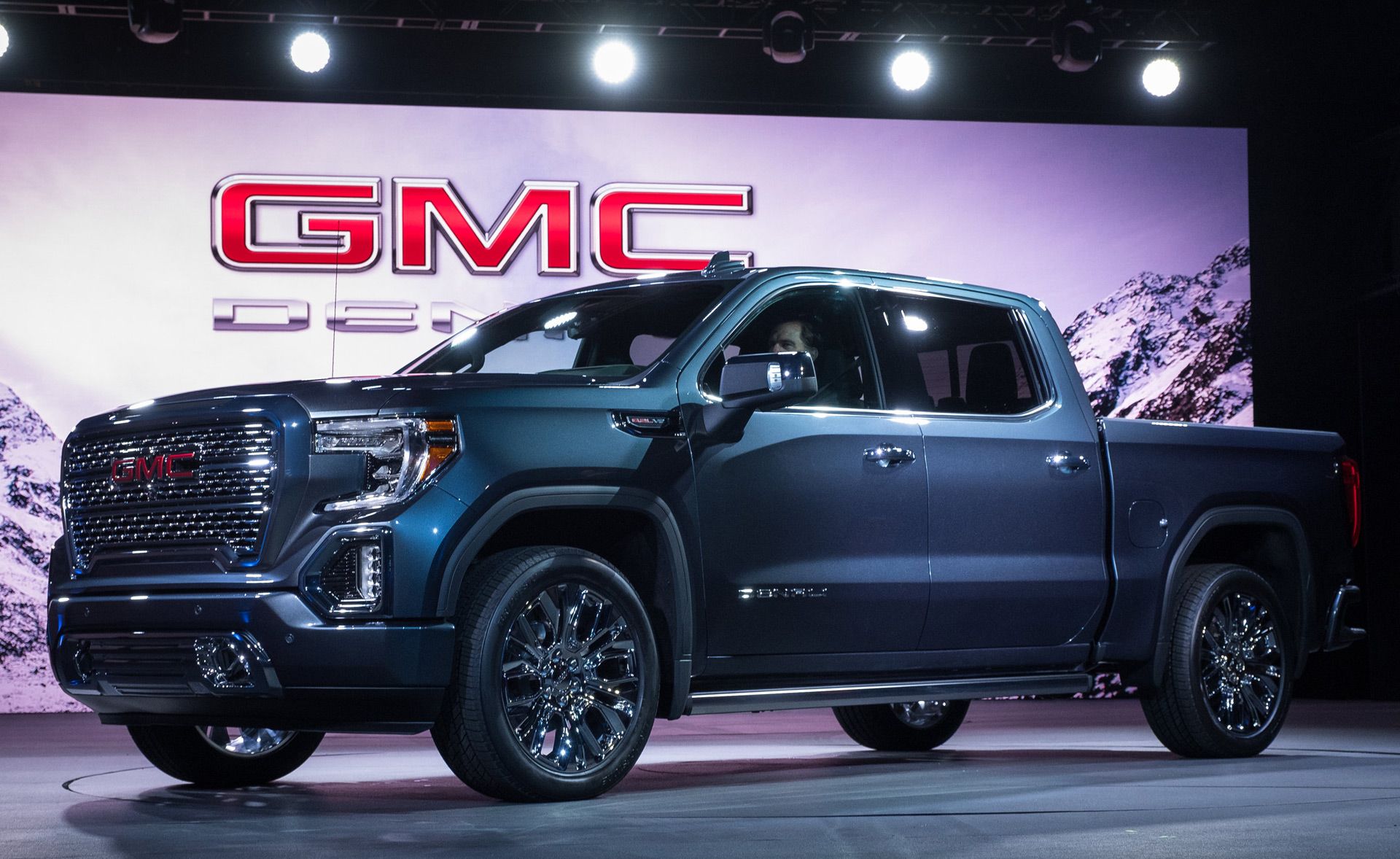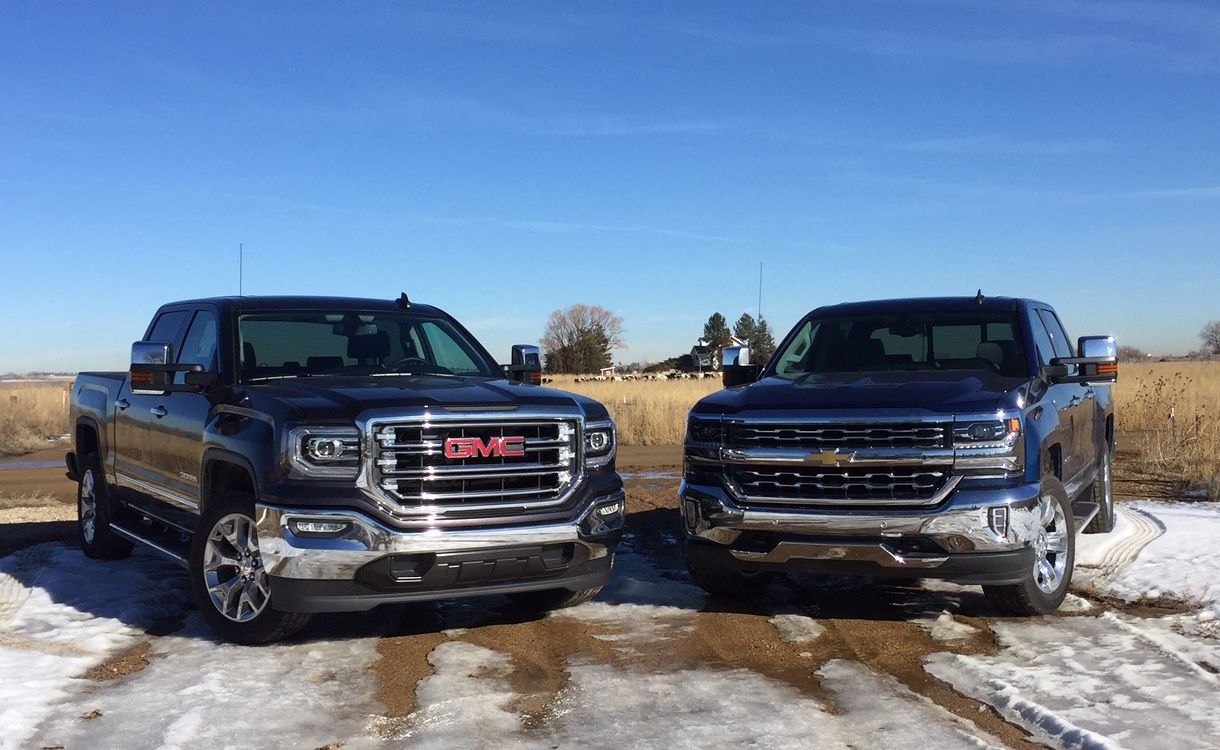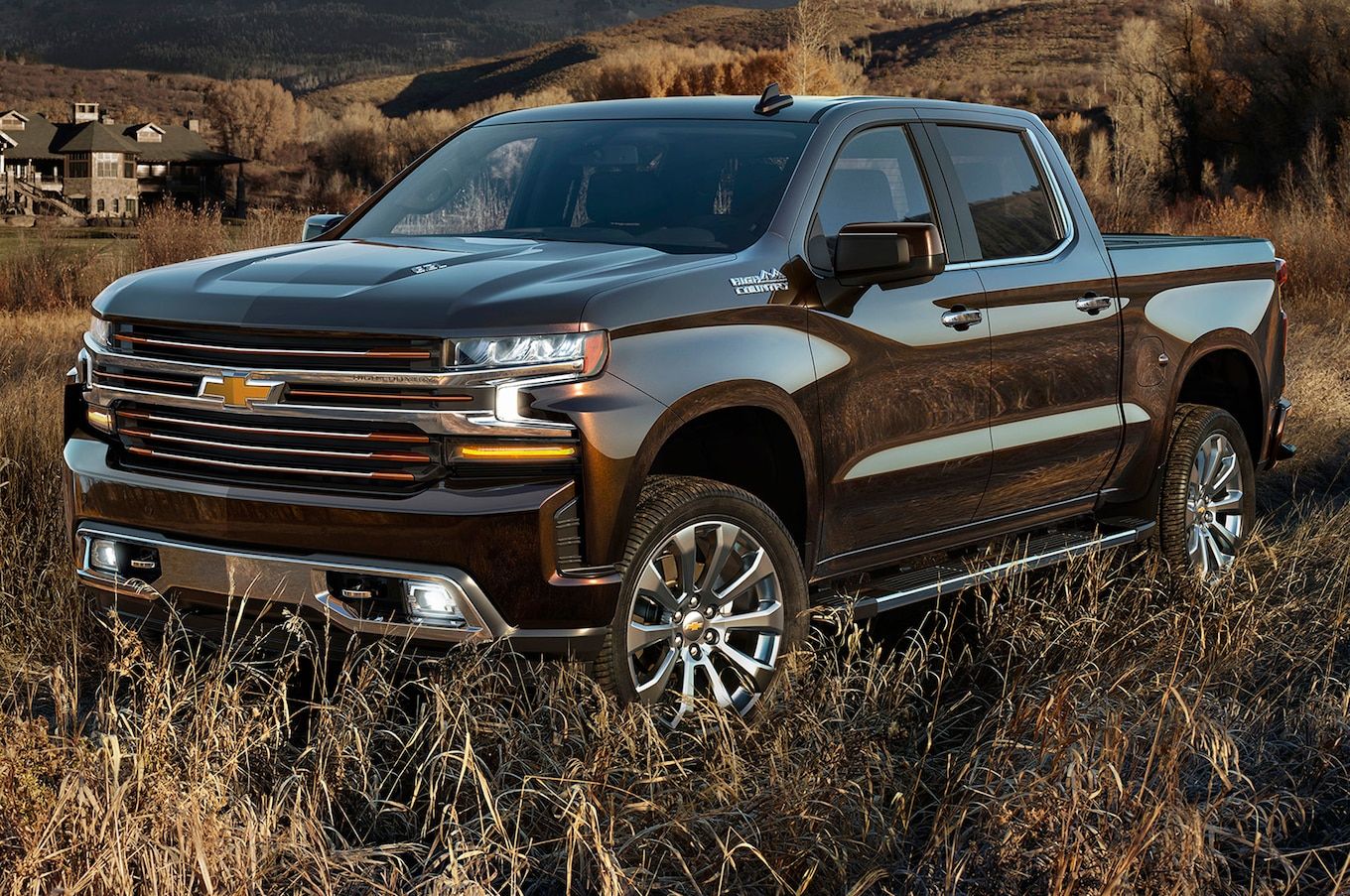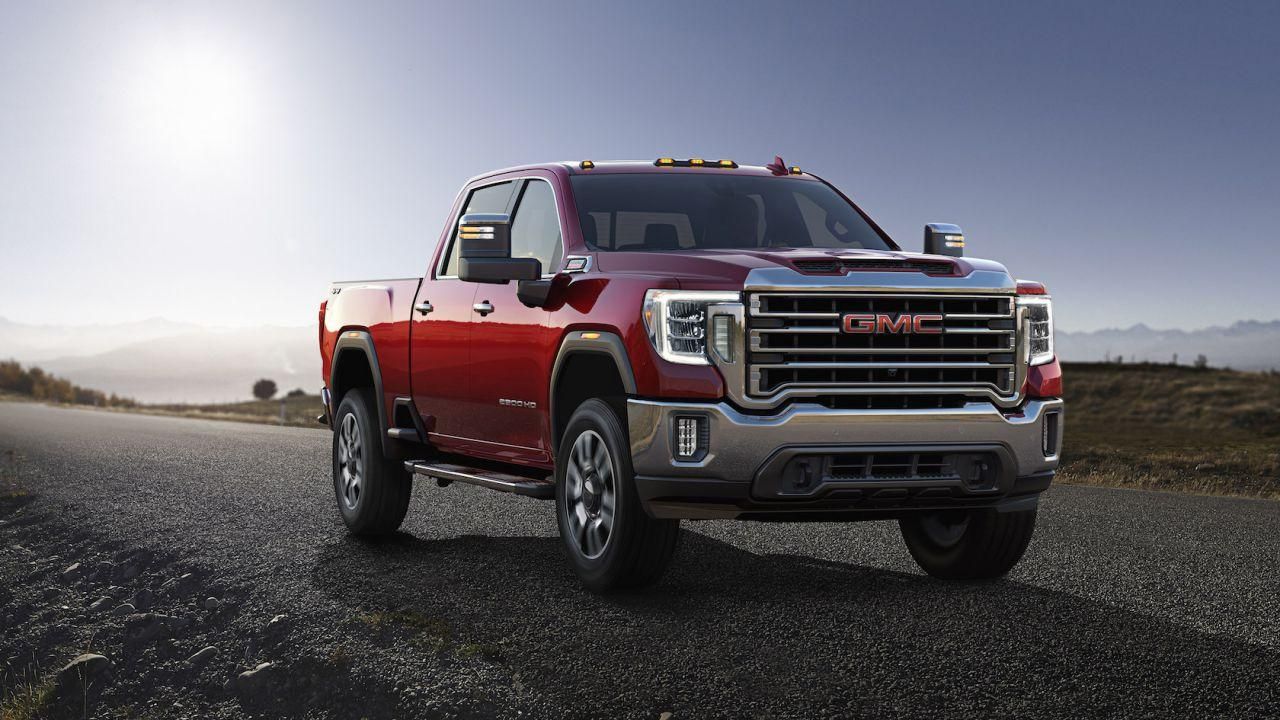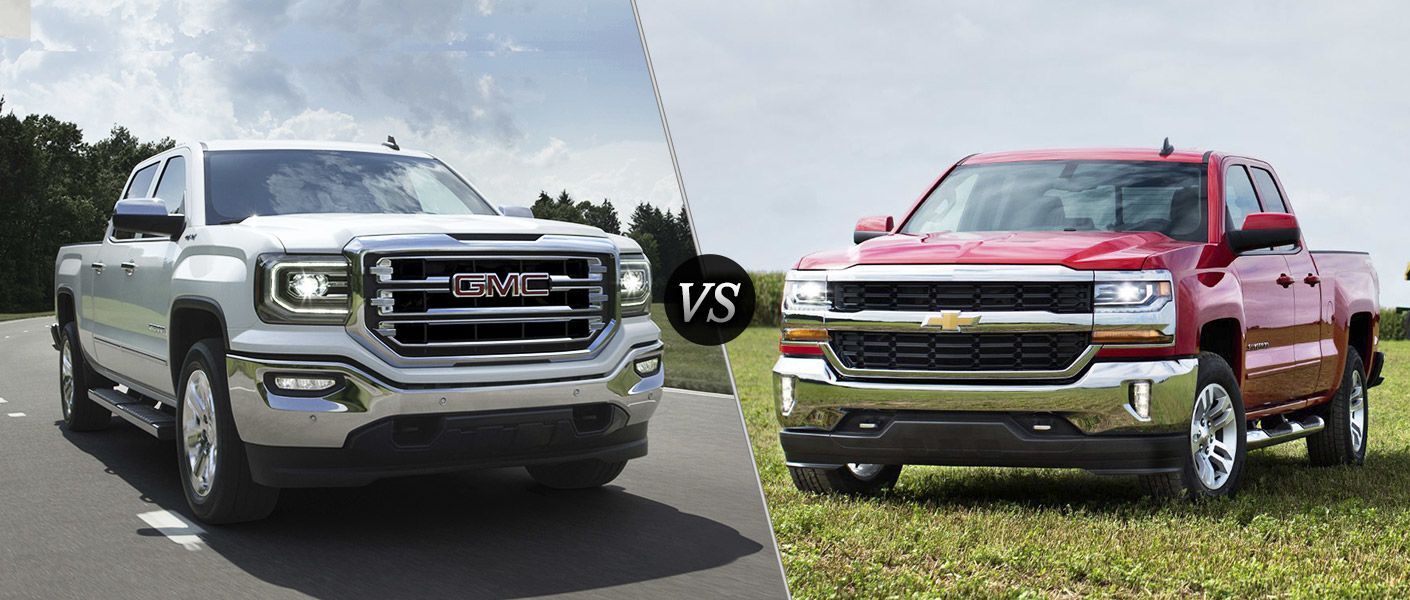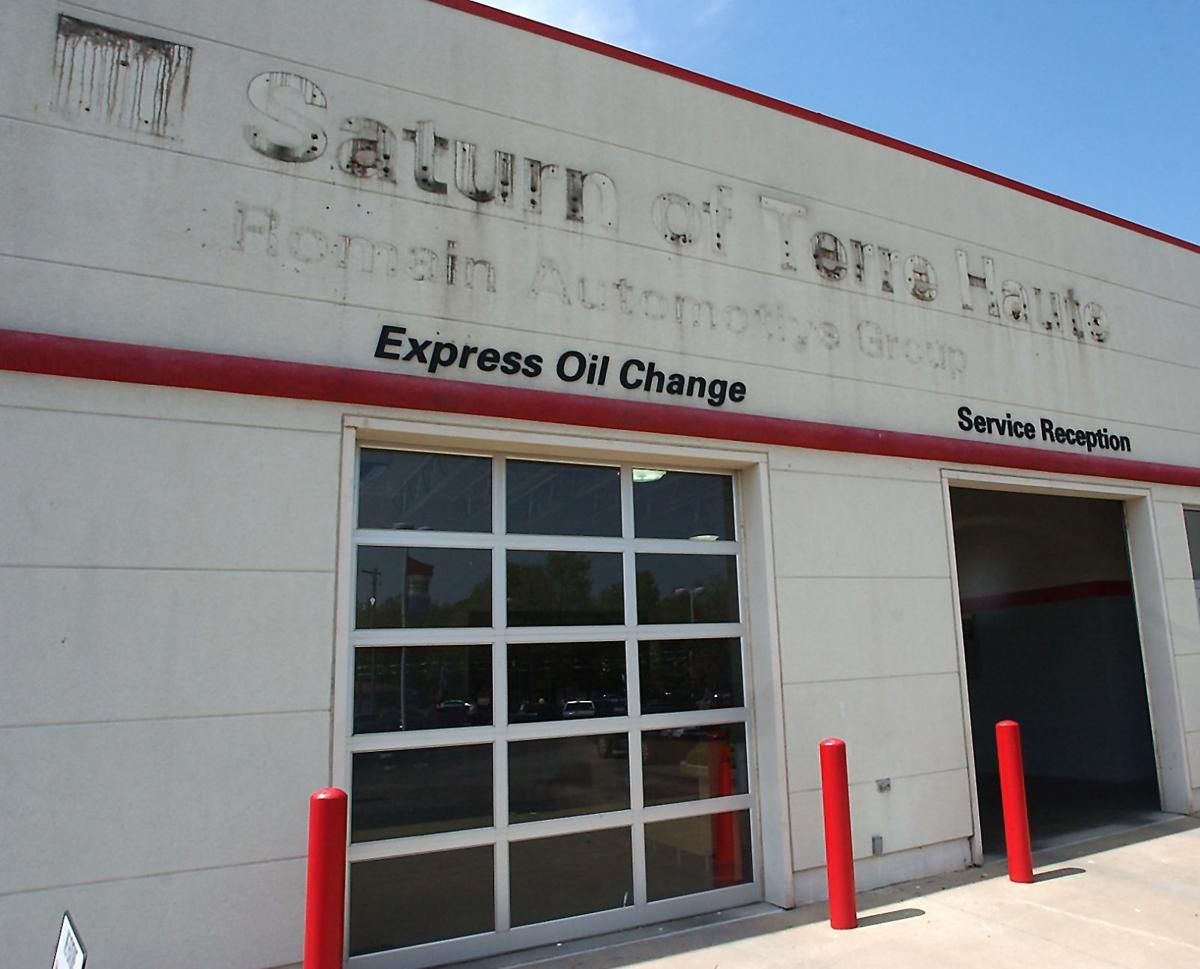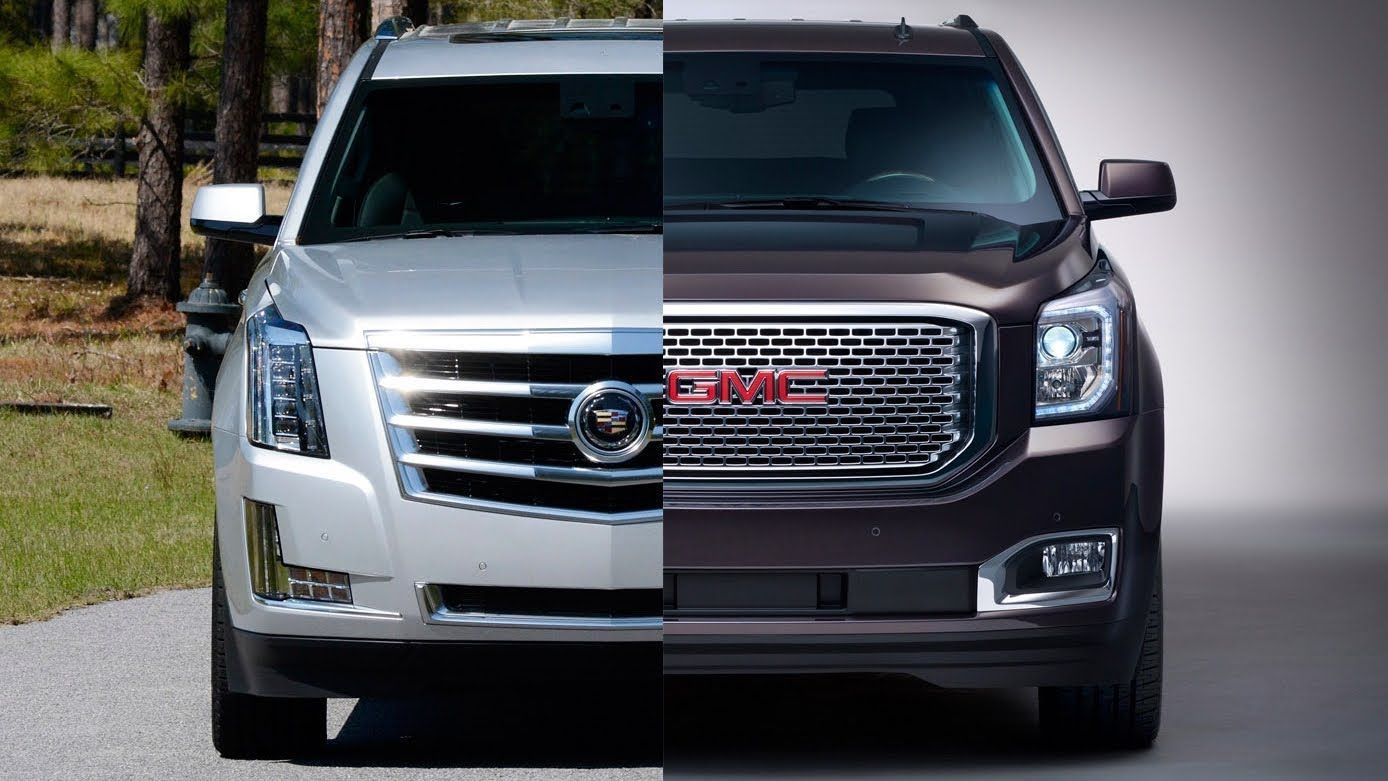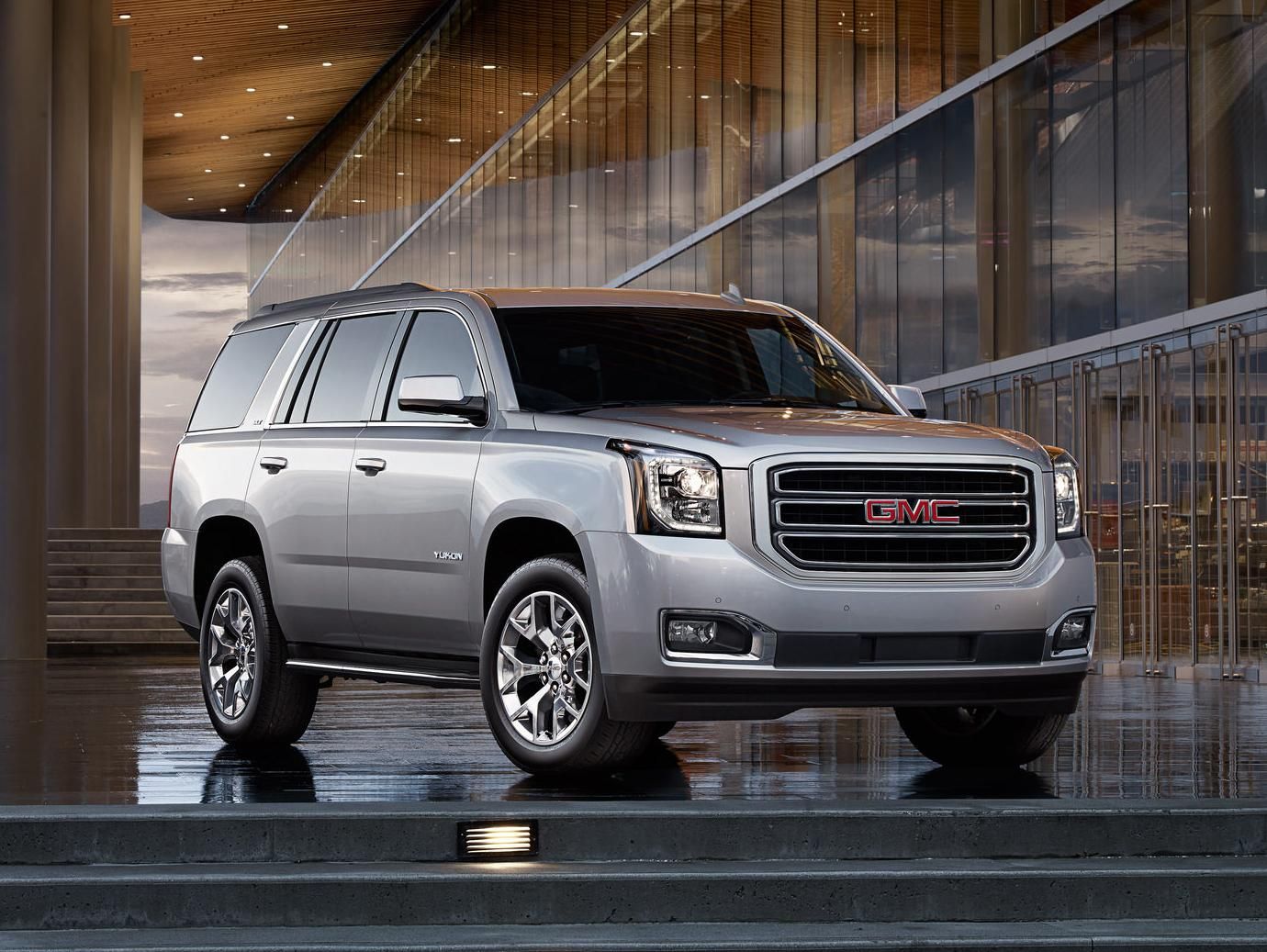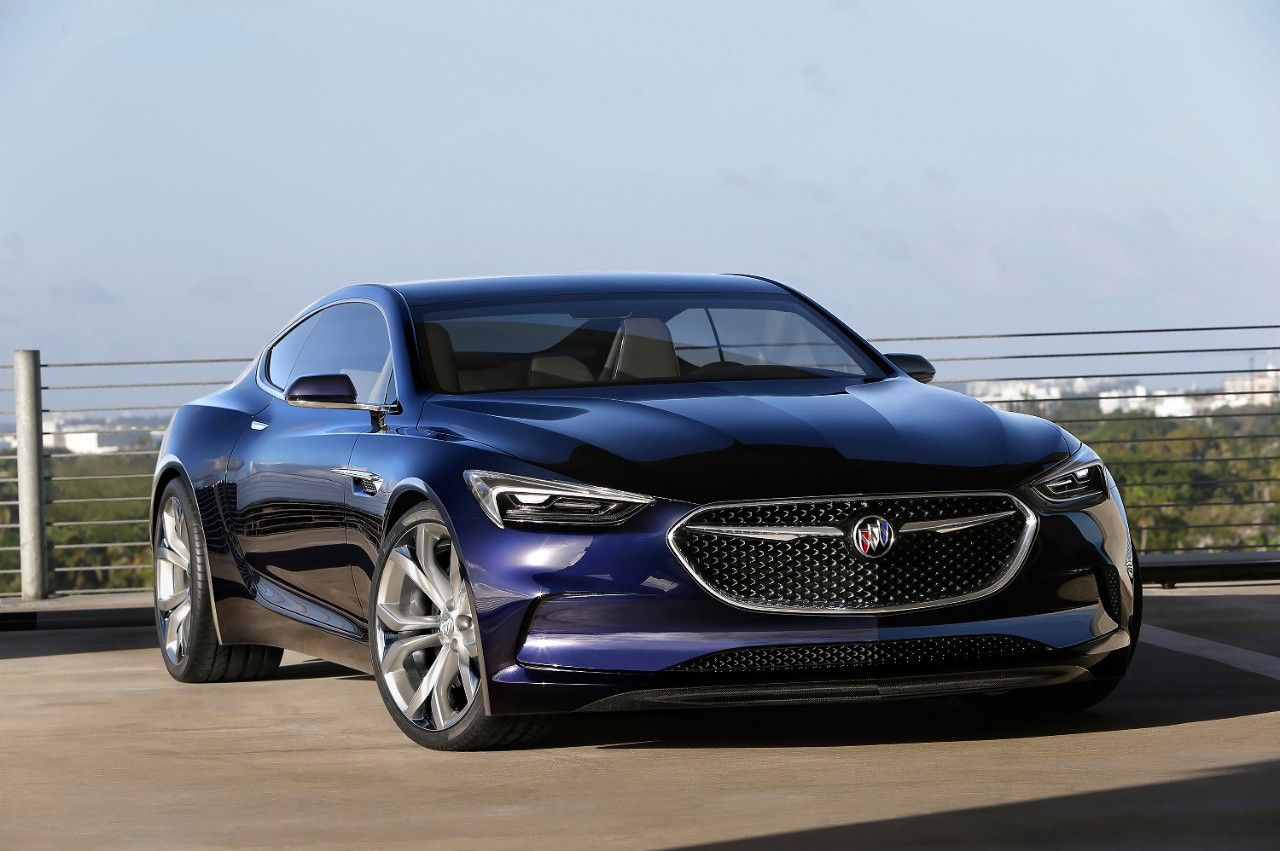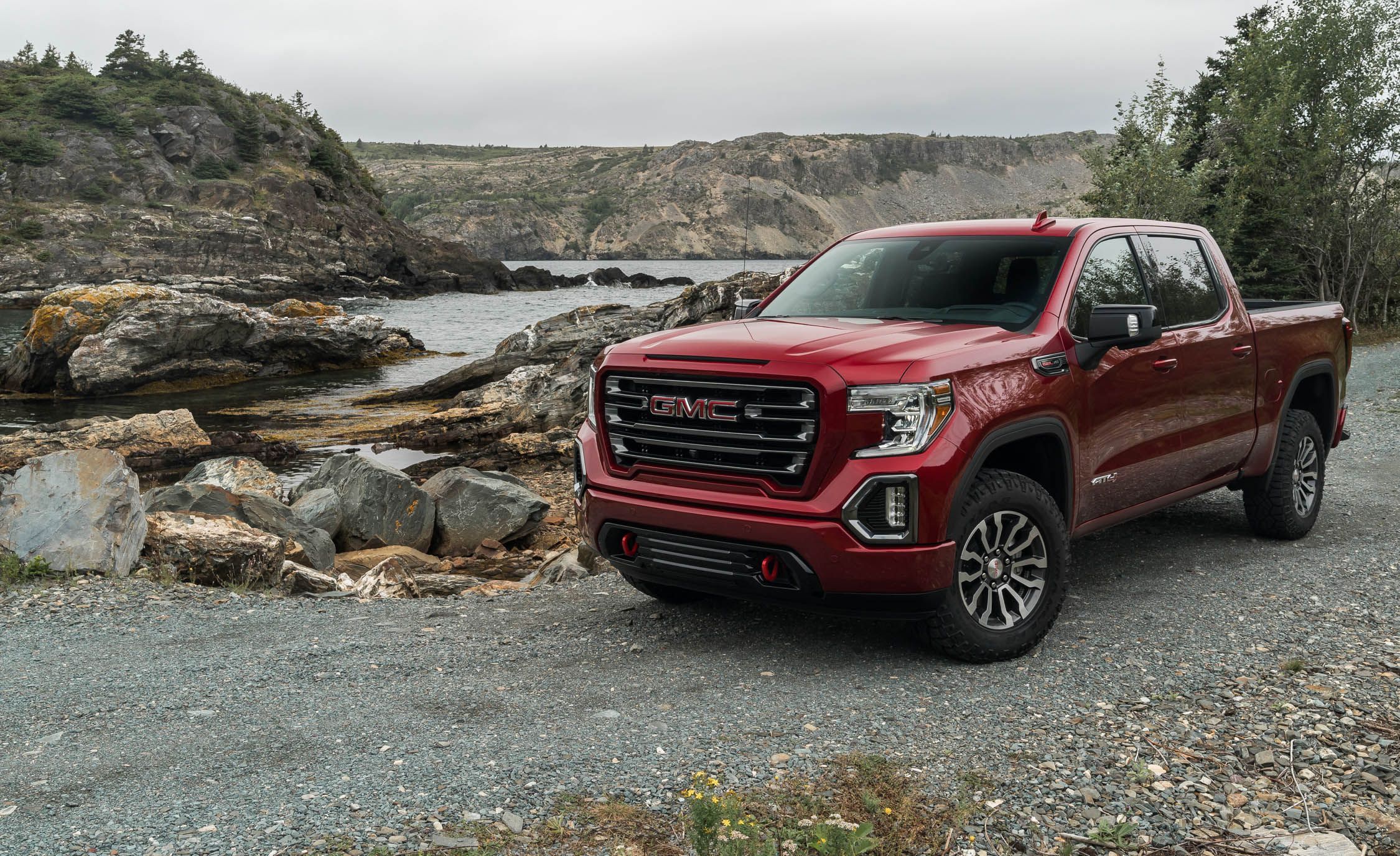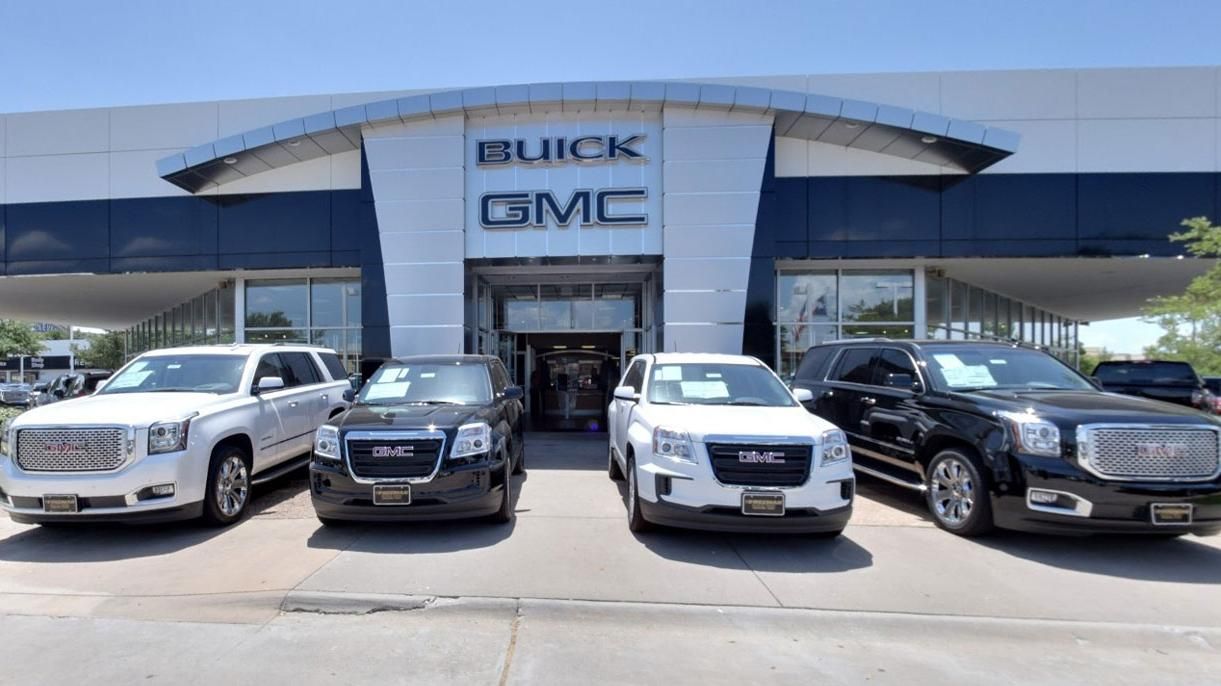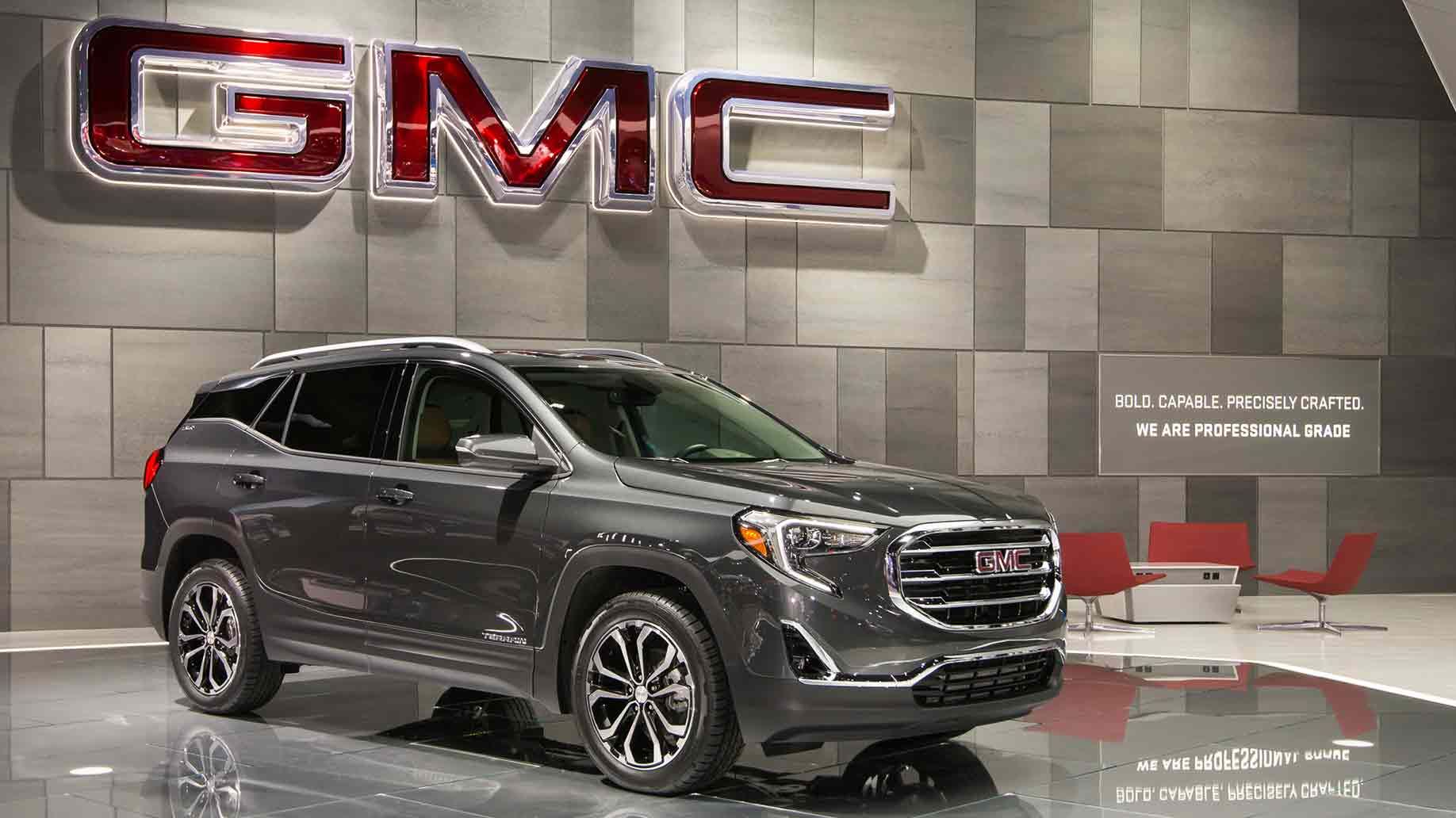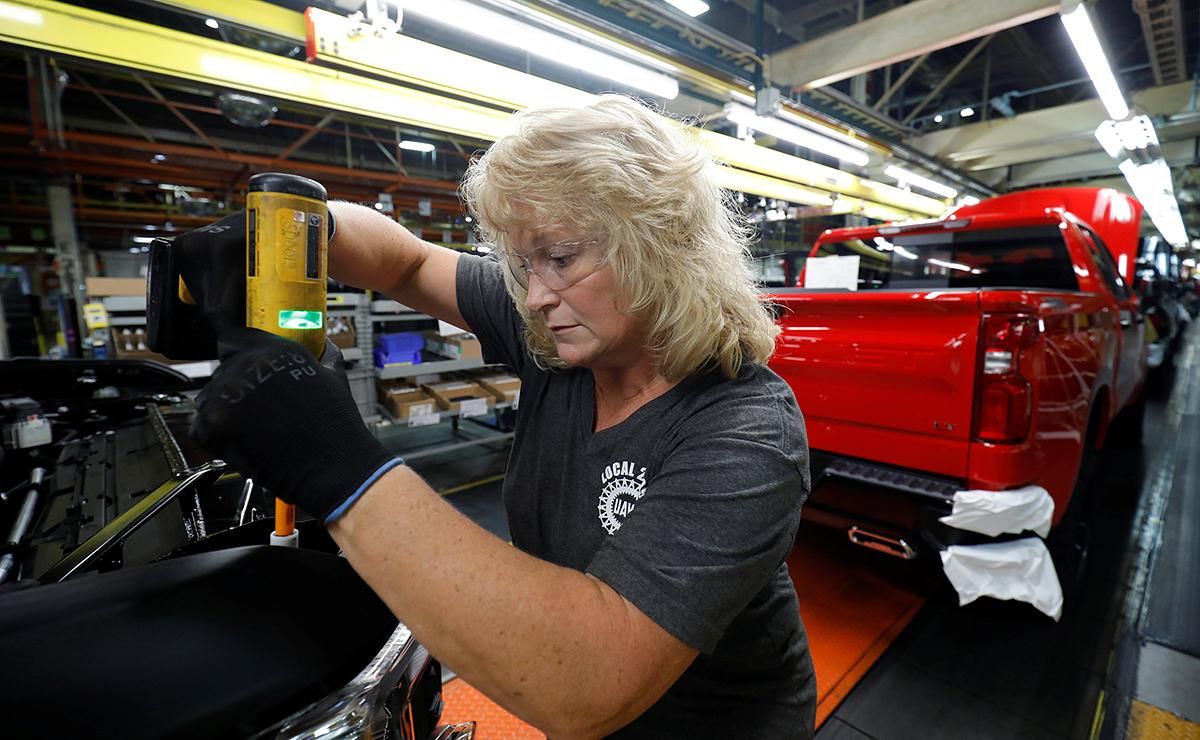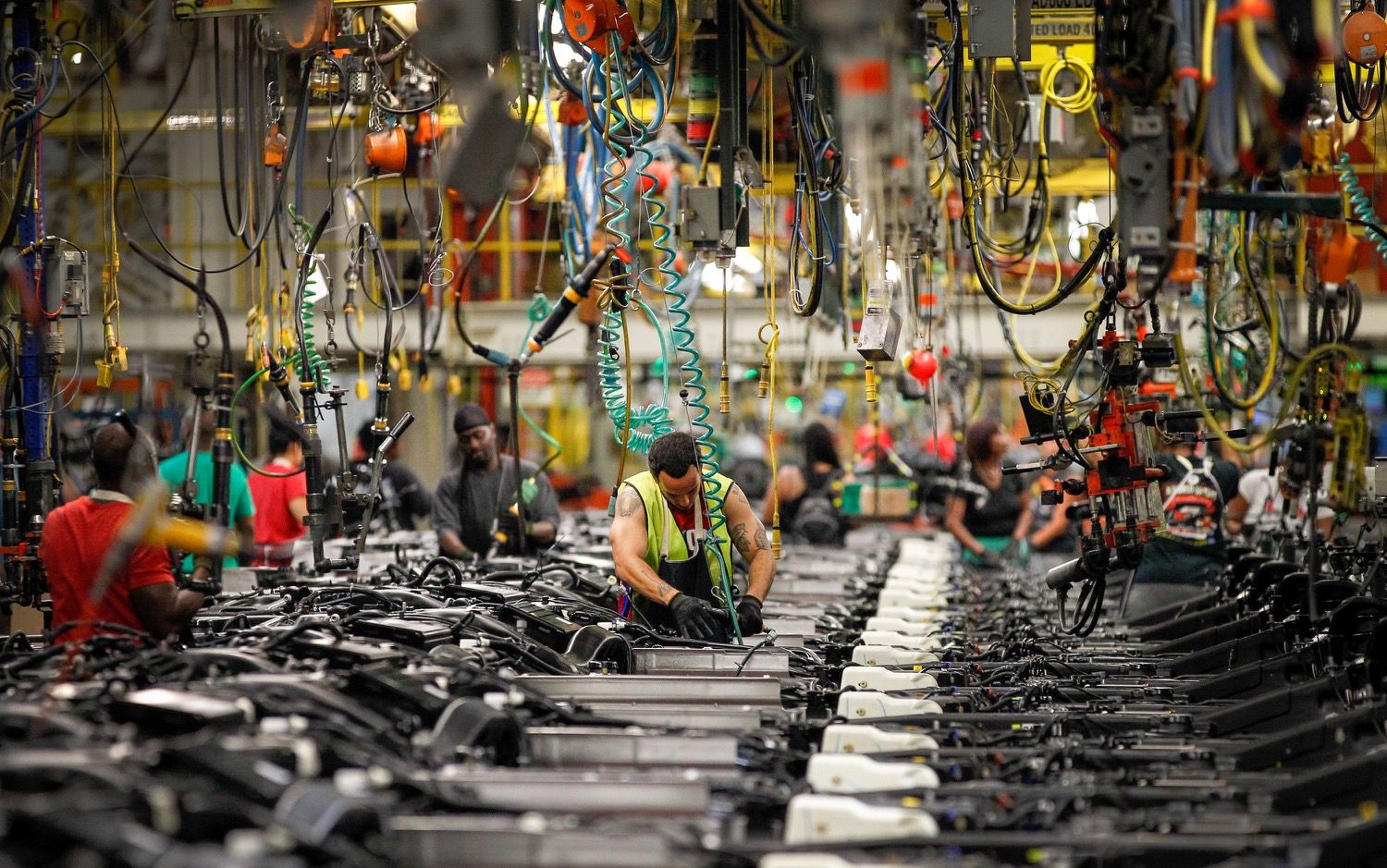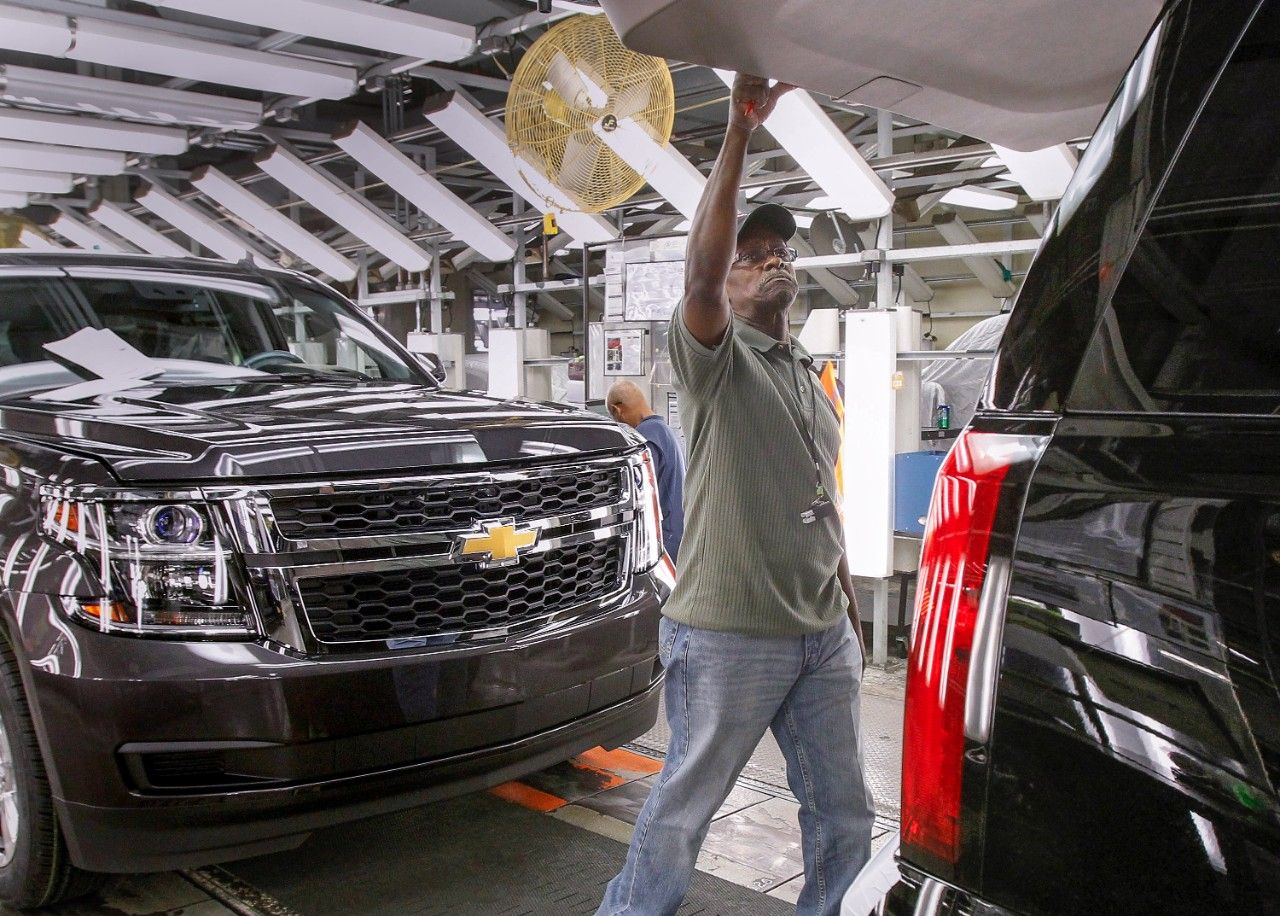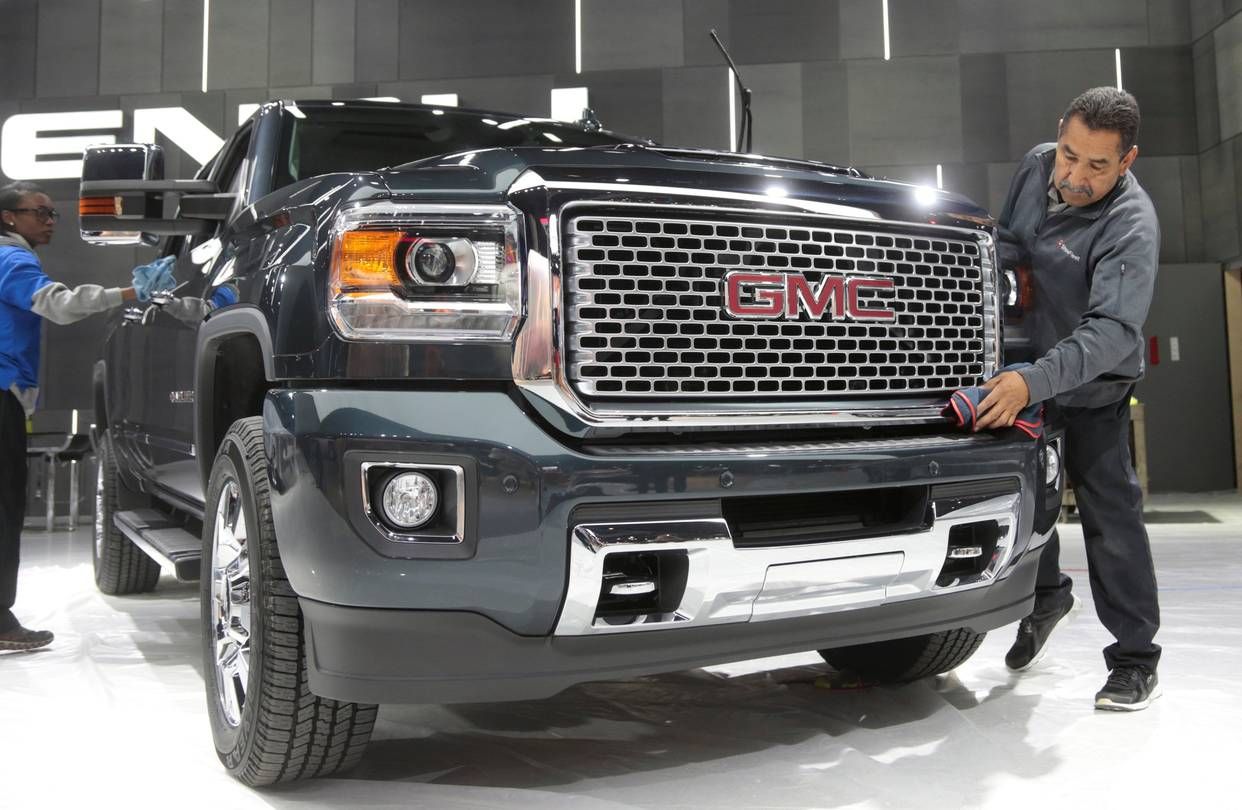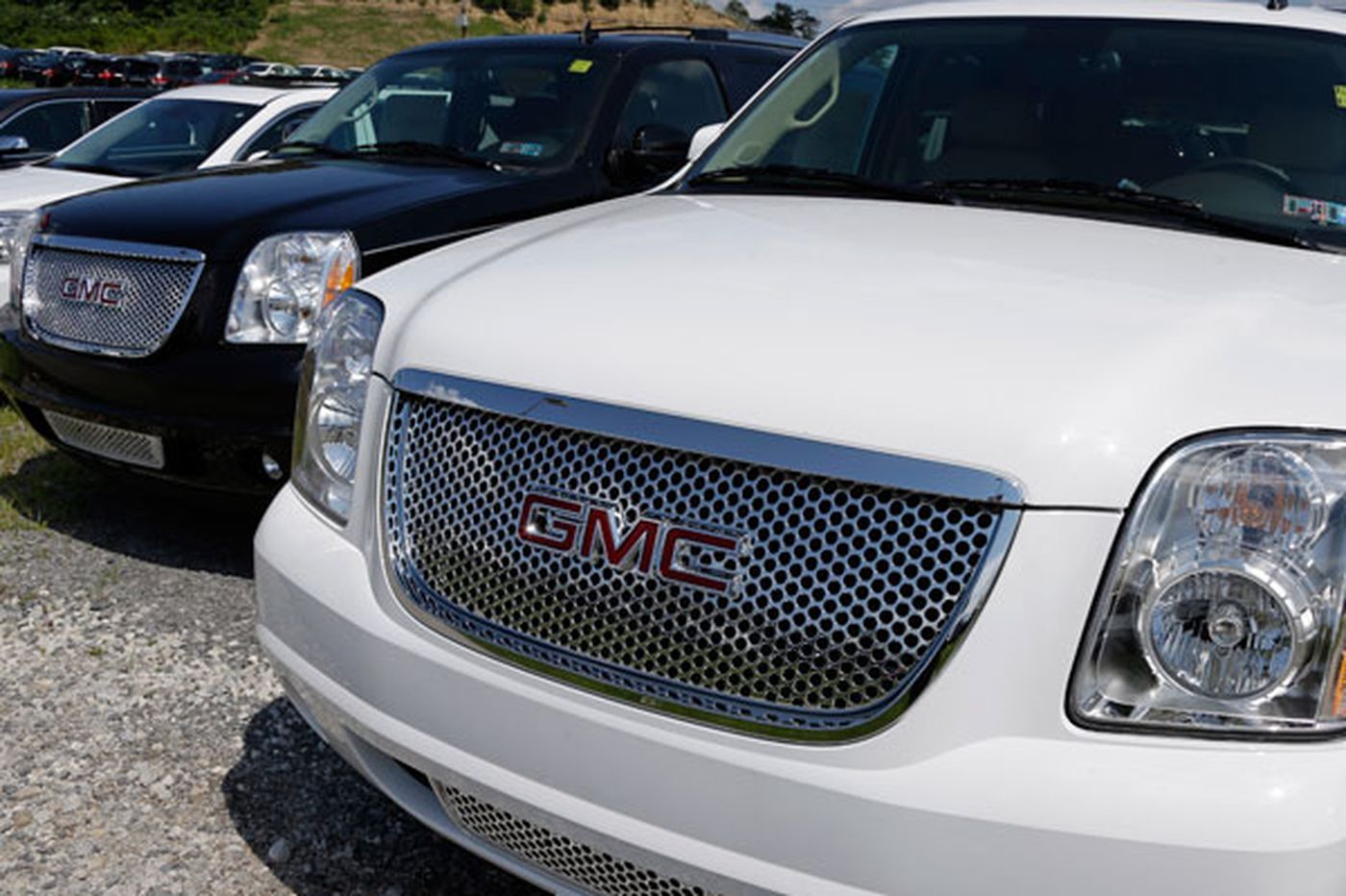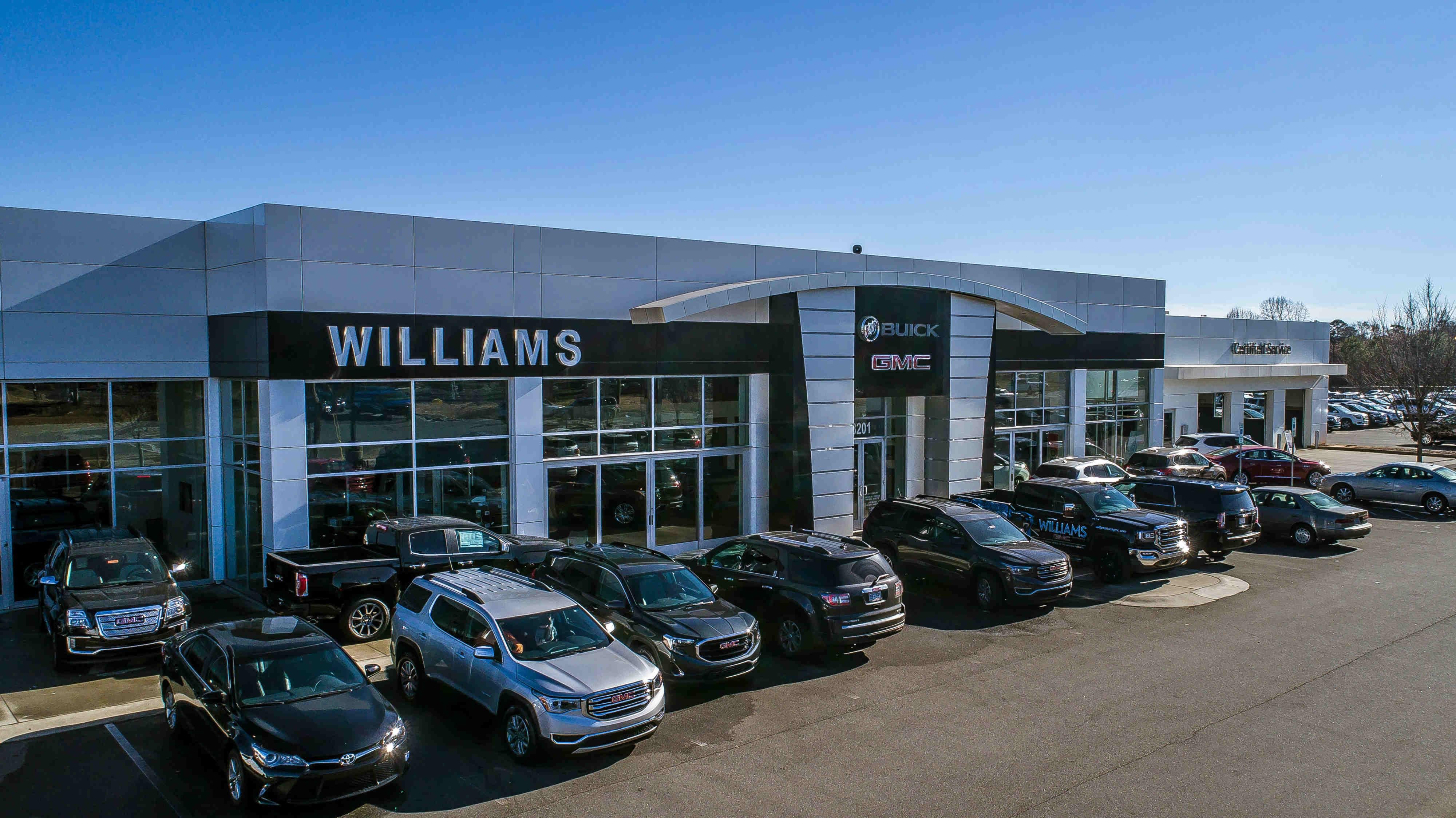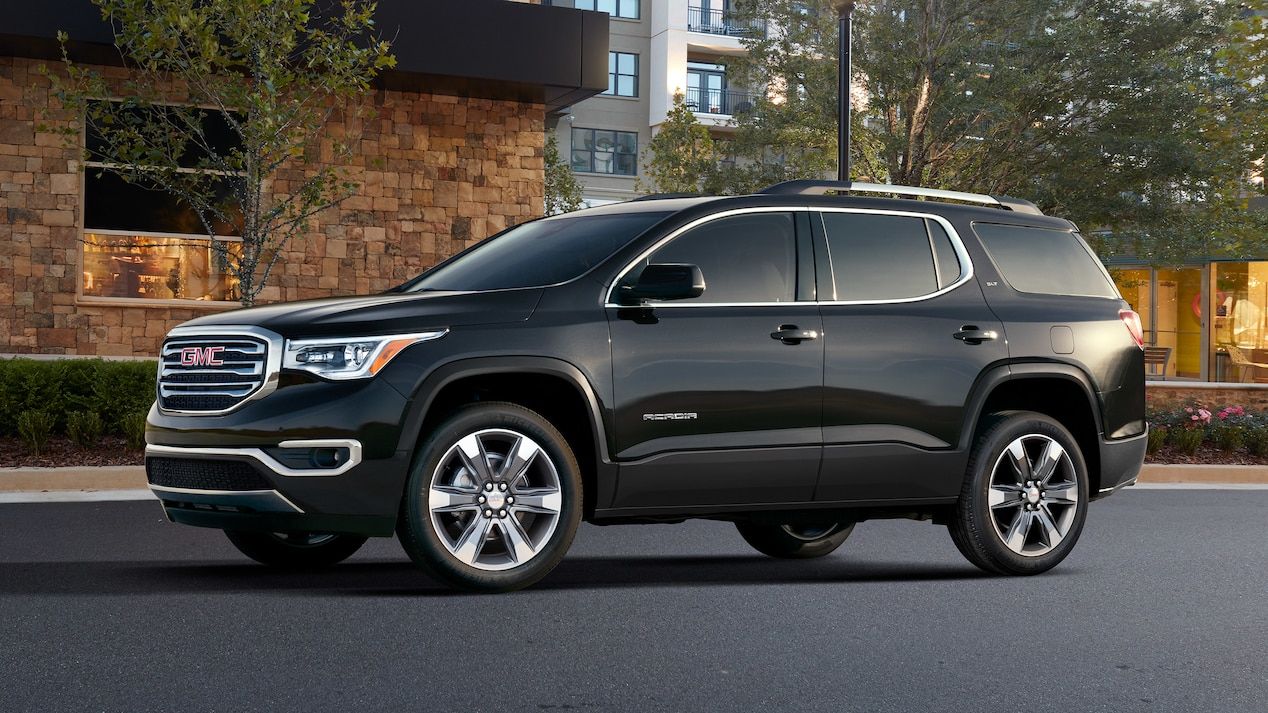GMC is one of the many car companies that is owned by General Motors. GMC, as a brand, has been around since 1911, formally known as the “GMC Division” of General Motors. They’re primarily focused on trucks and utility vehicles, like SUVs. It would seem that GMC is a brand on its way out and that GM might be better off shutting the marque down, but that might not be the case.
GMC offers people (and dealerships) trucks and SUVs at a different price point than any of their other companies. They are supposedly higher-tier or more luxurious than Chevrolets and that alone means that they’ll be viable for as long as trucks and SUVs are the most popular market segment in the US. Even though GM had a down year in 2018, which isn’t good, GMC sales are fueling much of their profit-making that will enable them to roll out electric vehicles, self-driving cars, and other autonomous features in the future.
For every reason that GM might have to shut down GMC, there are probably two reasons why they should keep them open. For instance, in 2004, GM shut down Oldsmobile, and they were immediately met with a headache that nearly cost the company its very existence. They ended up having to shell out billions to keep people satisfied—previous Oldsmobile owners and dealers—and you’ll see why in a minute.
This article will explain nine reasons why General Motors should consider shutting down GMC once and for all, and then twelve reasons why they shouldn't shut down the company.
21 Dump GMC: Sierra Sales Didn’t Help Declining 2018 Sales Year
In 2018, General Motors’ US sales dropped 1.6% from 2017, which doesn’t sound like a lot, but any drop is a big one with a company as big as GM. Their December 2018 sales were down 2.7% and sales of new pickups weren’t strong enough to overcome the loss. Neither was the GMC Sierra, which was actually up 4.3%. The GMC Terrain was up 33.8% over 2017, which is huge, after General Motors spent a whole lot of money in 2016 revamping their entire lineup of SUVs. Even so, these benefits were not enough to save a declining GM, which begs the question: is GMC even helping overall, especially in the long run?
20 Dump GMC: A Sierra Is More Expensive To Make Than A Silverado
Even though they’re basically the same truck (though they’re not, which we will get into later), the GMC Sierra actually costs more to manufacture than its badge mate, the Chevrolet Silverado. The Silverado and its GMC counterpart are two of the most popular light-duty trucks on the market. Despite their similarities, before becoming standalone trucks in 1999, the Silverado and Sierra were trim levels for the Chevy C/K line of trucks. Both of these trucks compete with the F-150, the heaviest-hitting truck on the market. The GMC Sierra is known for being a more luxurious version of the Silverado, though they share many of the same features, and the Sierra is built with premium materials.
19 Dump GMC: But GM Makes $17,000 Profit Per Silverado Sold
Trucks are a gold mine for General Motors (and every other car company). The Silverado and Sierra have a very important task at GM: to fund the car company’s future electric car line and autonomous vehicle operations. And GM squeezes every nickel and dime they can over the trucks, to ensure healthy margins. The Silverado brings in $17,000 in pre-tax profit for every unit sold. Now, if you consider the above entry that showed the Sierra is more expensive to make, doesn’t it make sense to try to put all your eggs in the Silverado basket, since it costs less and arguably makes the company more money per vehicle sold?
18 Dump GMC: They’re Focusing On Profit Rather Than Sales
Full-size pickups for GM had flat sales in 2018 compared to 2017, while FCA Ram pickups rose 7% and Ford’s market-leading F-Series gained 1.4%. These aren’t good metrics for GM. Sedans for GM didn’t do much better, since crossovers are becoming bigger and bigger. The upshot is that GM is willing to allow sedan sales to slump to maximize profit margins, in order to heavily invest in a new generation of battery-electric vehicles that will begin rolling out in a few years. GM appears heavily profitable in the US on paper, thanks to their crossovers, but it’s clear they have more work to do over the next couple of years.
17 Dump GMC: GMC Nameplates Are Just Glorified Chevy Clones
Many people wonder why General Motors continues to produce the GMC vehicle line when all of their pickups and SUVs that carry the GMC nameplate are basically just clones of the Chevrolet pickups and SUVs (but with different trims) and aren’t as popular. If a company as big as General Motors has trucks like the Silverado that are bringing in a ton of cash and profit—and cost less to make than their GMC counterparts—doesn’t it make sense that they might close that GMC line, which isn’t as profitable? Well, the answer isn’t that simple, as we’ll see a little further down the line.
16 Dump GMC: They’re Used To Buying And Selling Independent Car Companies
General Motors, like every big auto manufacturer these days, has a long history of buying up smaller car companies—their competition—in order to merge them into the larger GM brand. That’s how GM became GM in the first place: they acquired a number of then-independent car companies, starting with Buick, Oldsmobile, Cadillac, Oakland, Elmore, and the Reliance Truck Company. Then they started Saturn and Hummer, purchased Saab for a time, and had partnerships with Toyota and Subaru. They’ve also owned a variety of international brands, like Opel, Vauxhall, and Holden. And how many of those companies mentioned are still around? We don’t have Saturn, Oldsmobile, Reliance, Elmore, or Oakland, and Buick seems to be on its last legs, too. So closing GMC shouldn’t be a big deal.
15 Dump GMC: It’s Competing With GM’s Other Product Lines
As mentioned earlier, the GMC Sierra is in direct competition with the Chevrolet Silverado, which sounds counterintuitive since they belong under the same umbrella brand. And that’s just the pickups—other GMC models are in direct competition with GM vehicles. The problem that you’ll see is that General Motors can’t really close GMC, even if they wanted to. There are too many things to consider, including existing contracts. So, what they’ve had to do is find new ways to market each car differently, by making no two brands exactly alike. For instance, the interiors of the Sierra and Silverado are not exactly the same—the Sierra is a higher trim, is fancier, and is built with better materials.
14 Dump GMC: They’ve Closed Other Companies That Competed With Themselves
GM has closed a marque that competes with themselves based on the models being sold. Pontiac, Oldsmobile, Saturn, Humvee, and Plymouth all closed their doors because they weren’t economically viable (those were all owned by GM). But it isn’t so easy to close GMC. For now, GM is relegated to selling GMC trucks at some dealerships and Chevy trucks at others. The arrangement certainly ends up hurting GM by increasing their costs. Some of the companies they’ve kept open make sense, though. Buick is strangely the number one brand in China, by multiple metrics, so it needs to stay open. Cadillac, too, is like their version of Lexus, Audi, and Acura, which are the luxury branches of Toyota, Volkswagen, and Honda.
13 Dump GMC: They Could Drop The Name Like They Are With Buick
This is a viable alternative to closing GMC completely, since it’s something that they’re already doing. Buick seems like it’s an “old people” car brand but in China, it’s the number one car company. So, they can’t close the company because they’d lose out on a ton of profit from a huge market. What they have decided, though, is to take off the Buick nameplate and just sell them by the car names. Buicks in China are already doing this. They simply sell as the 2019 Enclave or 2019 LaCrosse, without the Buick name attached, hoping that the three shields will sell the product alone. And it does. So, they could feasibly do the same with GMC.
12 Keep GMC: The Trucks Are Highly Profitable
One of the main reasons GM can’t shut down GMC is because their trucks are highly profitable, plain and simple. Also, the GMC line really does have a different character than Chevy. Yes, the trucks and SUVs are basically the same, with different trims, but GMC doesn’t sell the passenger cars. You see more of an emphasis on the larger trucks at GMC dealerships than you do other commercial-grade trucks sold by GM. And while GMC shares many of the same underpinnings of other GM vehicles, they often have significantly different engines and insides. People think that General Motors should become more of a “Specific Motors” company but they can’t while their GMC trucks are so profitable.
11 Keep GMC: Contractual Obligations Won’t Let Them
Another huge reason why GM can’t close GMC is that contractual obligations basically forbid it. It will cause a huge headache with dealerships around the world if they try the move, especially in the US. GM has contracts with a large network of independent dealers and they’ve already dealt with this issue in 2004. When they discontinued Oldsmobile, dealers who had franchised the right to sell Oldsmobiles sued GM for breach of contract when they no longer supplied the dealer businesses with Oldsmobile-branded vehicles. Logic would think that they’d just fill those cars with Buick, Chevy, or Pontiac brands, for instance, but they couldn’t because that would disenfranchise other dealers in a similar fashion. So, GM learned its lesson the hard way.
10 Keep GMC: GMC Is Necessary After Their Chapter 11
After GM filed Chapter 11, it allowed them to remake their branding strategy. Chevrolet and Cadillac were obvious frontrunners for the company to hold onto, to compete with Toyota, VW, and Honda. They also chose to keep Buick and GMC; Buick for the reasons mentioned earlier and GMC because it offered luxury (like Lexus, Audi, and Acura) for the truck market. Within the blue-collar demographic, GMC has a lot of pull—this demo buys trucks and trucks have been the main share of profitability for GM for decades. Having GMC was also instrumental in GM’s deals with Lyft and Cruise Automation. The truck market is so big that GMC is necessary to keep for its parent company.
9 Keep GMC: GM’s Best Engineers Are Designated To Trucks
General Motors has great engineers and because the truck market is their biggest market, they put all of their best engineers on trucks of all sizes. GM’s best engineers were assigned to trucks because it paid all the bills. They even created a “dream team” to build the Chevy Volt and didn’t choose car engineers, instead going with truck engineers, headed by Tony Posaswatz. So, if General Motors were to do away with one of their biggest truck-selling brands, one might wonder where their best engineers would go? They could easily set up shop with a new company, who would gladly have their expertise, and that’s something GM doesn’t want!
8 Keep GMC: They Could Suffer A Loss Of Volume By Closing A Big Plant
This is another money issue (aren’t they all?)—that General Motors could suffer a huge loss of volume for all their other cars if they closed a big plant that produces GMC vehicles. For instance, in Arlington, Texas, GM’s first air-conditioned plant is 60 years old and builds the big SUVs for Chevy, GMC, and Cadillac. Due to brand marketing, they couldn’t shut down GMC and not suffer a loss of volume from that plant. And a loss of volume would have a profound effect not just on GM’s bottom line, but it would snowball and affect many other things negatively within the organization.
7 Keep GMC: A Loss In SUV Volume Would Increase GM’s Costs
One way that closing big GMC plants would negatively affect General Motors is by increasing GM’s costs around the board. Any drop at that Arlington plant, for instance, would raise costs for all of GM’s remaining brands. Running the Arlington plant at any less volume than it has today would cause certain fixed costs to spread over fewer vehicles. Thus, it would cost more to produce each vehicle. And thus, their cars would have higher prices. And thus, they would have less volume. It could precipitate a very negative spiral that could end up hurting GM a lot more than most people would think one company like GMC could.
6 Keep GMC: Their Knowledgeable Truck-Only Dealers Aren’t Expendable
Because they are a specialized brand in trucks and SUVs, GMC dealers and salespeople need to be very knowledgeable about their brand. They have to be prepared for commercial customers who have different needs than the ordinary customer. Because Chevy caters to a more general audience, dealers of Chevys don’t have to have as much experience. For instance, anyone on the floor could sell a Cobalt or an Impala but there are few people who could describe the benefit of a truck's locking rear axle or could cite the differences between 1500 and 2500 towing ratings without having to look it up. That kind of expertise is crucial and GM doesn’t want to lose those salespeople to competitors.
5 Keep GMC: Dropped Customers Might Switch To A New Brand
This is a big worry that must be at the forefront of GM’s mind when considering closing GMC: will people who were GMC enthusiasts and owners continue buying under the GM brand if GMC closed? There’s a high probability that they wouldn’t. Brand loyalty is a big deal. GM has to worry that if they closed GMC up for good, folks who bought those trucks would go out and buy a Toyota or Honda in the future. If you can’t keep your companies open and remain loyal to your customers, why should a customer be loyal to a brand? They shouldn’t—and they probably won’t.
4 Keep GMC: They Don’t Want To Spend Billions Buying Off Dealers
This was the main lesson learned when they closed Oldsmobile: that it was more expensive to close the brand than it was to keep it open. Back when they were sued by all those Oldsmobile dealerships for disenfranchisement, GM ended up shelling out billions of dollars to their once loyal dealers in order to survive the headache. If they tried to close GMC, the result would be the same but even worse. There are more dealerships that sell GMCs than there were that sold Oldsmobile. And you can bet your bottom dollar that they’d get sued all over again—and that’s something the company definitely wants to avoid.
3 Keep GMC: They Have Products With No Competition Or Equal
There are some vehicles that GMC produces that have no equivalent or competition, which, in itself, seems like a good enough reason to keep the doors open. The current GMC Acadia, for instance, has no Chevrolet product quite like it. Also, if you look at the 2019 Silverado and 2019 Sierra, GM has made painstaking developments to try to make the trucks very different in character. This has been a staple of car making for decades: being able to take a car that is basically the same as a base level car (or truck) and upscale the architecture with features and styling to appeal to a different customer and demographic.
2 Keep GMC: Many Car Dealerships Wouldn’t Make It
Many car dealerships, especially in rural areas, wouldn’t be able to exist without having GMC trucks to offer. Many GM car divisions just don’t sell enough volume to make it as stand-alone outlets in those areas. GMC provides a second brand that makes the rural Cadillac or Buick store a viable proposition. And since GMC and Chevrolet offerings are slightly different, a Cadillac or Buick dual-dealership with GMC can exist in the same market as a Chevy dealer. Many dealerships would shut down with GMC closing, which would hugely affect GM’s bottom line, volume output, and profit. As they’ve learned, it’s not so easy to shut down a company without many people and dealerships being affected. They want to avoid that headache.

